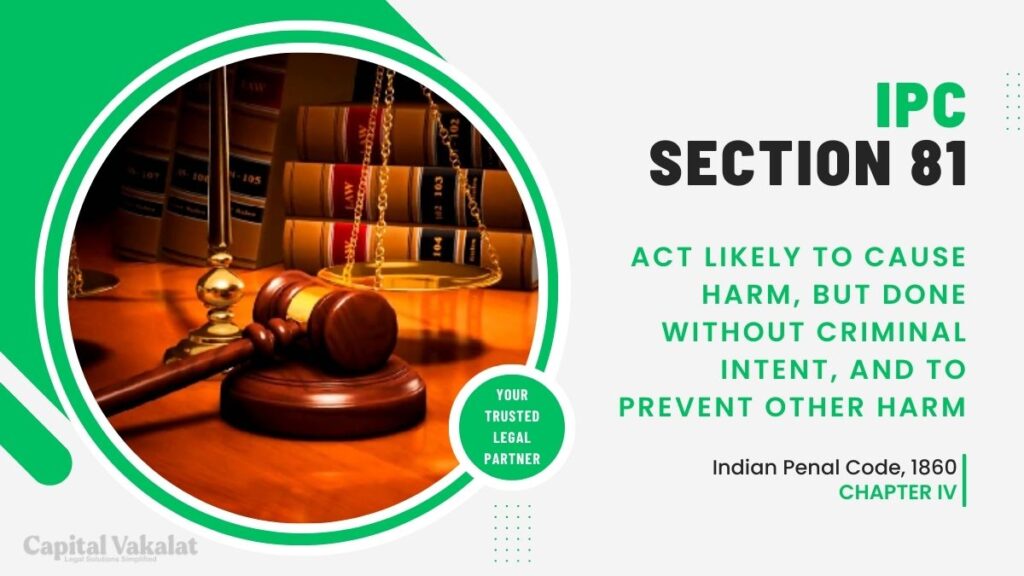In the realm of criminal law, the Indian Penal Code (IPC) stands as a formidable statute that governs various aspects of criminal conduct. Among its many sections, Section 81 is a unique provision that addresses situations where an act, although likely to cause harm, is committed without criminal intent and with the primary objective of preventing other harm.

This article delves into the nuances of Section 81 IPC, exploring its interpretation, application, and significance in the Indian legal landscape.
Understanding Section 81 IPC
The Fundamental Principle
Section 81 of the IPC is rooted in the fundamental principle that actions taken to prevent greater harm should not be treated as criminal offenses. It recognizes that there are situations where individuals may engage in activities that, at first glance, appear harmful but are undertaken with noble intentions.
Lack of Criminal Intent
One of the key elements of Section 81 is the absence of criminal intent. In legal terms, criminal intent refers to the guilty mind or mens rea, which is a crucial element in most criminal offenses. Section 81 makes an exception by absolving individuals of criminal liability if they can establish that their actions were devoid of any malicious intent.
Prevention of Other Harm
Another essential aspect of this provision is that the act must be committed to prevent other harm. In essence, if someone takes an action that may potentially cause harm but does so to avert a more significant danger or harm, they may find refuge under Section 81 IPC.
Application of Section 81 IPC
Examples
To better understand the practical application of Section 81, let’s consider a few examples:
Self-Defense
If an individual resorts to force to protect themselves from imminent harm, they may invoke Section 81 to establish that their actions were necessary to prevent personal harm.
Medical Emergencies
In emergency medical situations, a doctor may administer treatment that could be considered harmful in ordinary circumstances. However, the doctor’s primary intention is to save the patient’s life, making Section 81 applicable.
Legal Precedents
Over the years, various court judgments have upheld the principles enshrined in Section 81 IPC. These decisions emphasize the importance of considering the context and intent behind an action when determining criminal liability.
Significance and Conclusion
Section 81 IPC serves as a vital legal safeguard, ensuring that individuals acting in good faith to prevent harm are not unduly penalized. It embodies the principle that the law should not punish those who act with noble intentions, even if their actions have the potential to cause harm.
In conclusion, Section 81 IPC provides a necessary balance between maintaining order and recognizing the innate human instinct to protect oneself and others. It is a testament to the Indian legal system’s commitment to justice and fairness.
FAQs
Are there any limitations to invoking Section 81 IPC?
Section 81 is subject to certain limitations and conditions, such as the absence of criminal intent and the act being performed to prevent other harm.
Can Section 81 IPC be used as a defense in cases of public safety?
Yes, if actions are taken to maintain public safety and prevent potential harm, Section 81 may be applicable as a defense.
Does Section 81 IPC completely absolve individuals of all consequences?
While Section 81 may protect individuals from criminal liability, it does not necessarily exempt them from civil consequences or legal claims for damages.
How can one establish the absence of criminal intent under Section 81 IPC?
To establish the lack of criminal intent, individuals may need to provide evidence or arguments demonstrating their good faith and the presence of circumstances necessitating their actions.